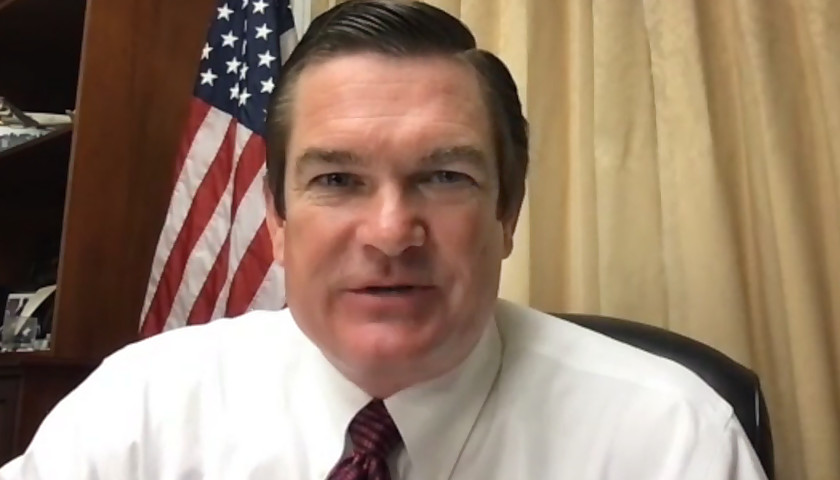U.S. Rep. Austin Scott (R-GA-08) said COVID-19 exposed serious weaknesses in the nation’s food-supply chain, and those weaknesses continue to stress farmers.
Long-term challenges, Scott said, may still await. And those challenges may eventually affect consumers — for the worse.
Scott said this in an emailed newsletter to his constituents Sunday. He said local farmers have experienced supply chain issues when it comes to having the resources to pack and transport farm products. Examples, he said, include boxes for fresh fruits and vegetables and other packaging materials.
Scott addressed these issues at a U.S. House Agriculture Subcommittee hearing on biotechnology, horticulture, and research.
“The American farmer gets a little less than 10 cents from every dollar that you are spending at the grocery store, probably even less than that right now,” Scott said at the hearing.
“[With] the increased costs of transportation and what is happening with inflation at the grocery store, the American farmer is not seeing that revenue.”
Scott said he visited a grocery store last week and intended to buy steak — but he passed it over because it cost too much.
“So when we talk about supply chain it’s not limited to the farmer. The American consumer is feeling the brunt of this when they go into the grocery store. The American farmer is not benefitting from the price increases that you are seeing,” Scott said.
“One issue as we talk about supply chain is something I never thought of, and that’s the issue of boxes. I think about seed. I think about chemicals. I think about transportation. I got a call from a farmer the other day saying ‘Guess what? We’ve got a crop that’s growing, and we can’t get the boxes to harvest it and put it into transport.’”
At that hearing, Georgia Organic Peanut Association Executive Director Peri Cooper said she lives in Sumter County, which produces a large supply of green beans.
“One thing that we observed this past year is that these large green bean-packing houses are typically sending things to Atlanta to serve larger urban markets. They started opening their doors for local residents to come in and pick up a couple of pounds of green beans from the farmer down the road who had been sending everything out to a larger open market,” Cooper said.
“There just needs to be scale-appropriate infrastructure so that farmers don’t feel the pressure to go to these large markets.”
Scott, meanwhile, said Americans may soon see a shortage of fruits and vegetables on shelves because of supply chain problems with boxes.
– – –
Chris Butler is an investigative journalist at The Georgia Star News and The Star News Network. Follow Chris on Facebook. Email tips to [email protected].
Image “Rep. Austin Scott” by Rep Austin Scott.








